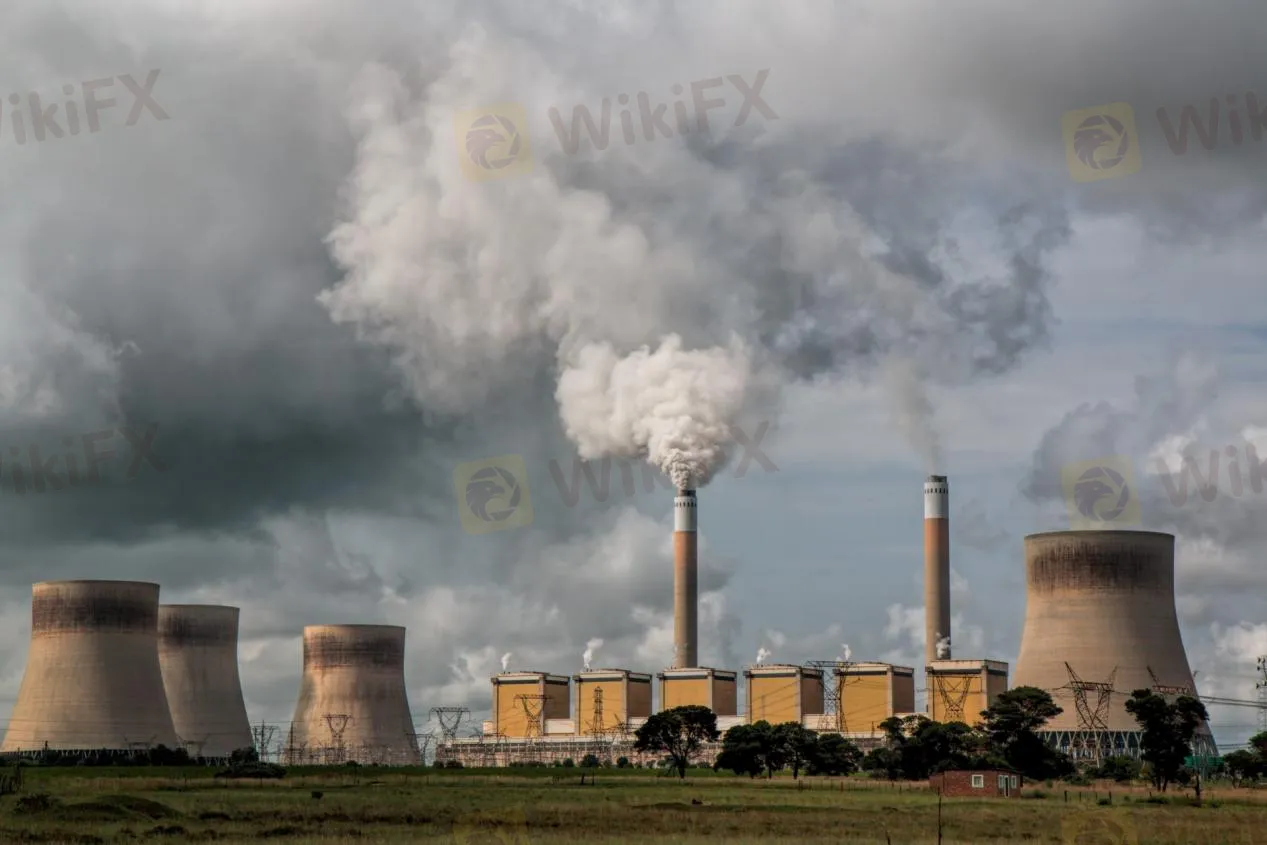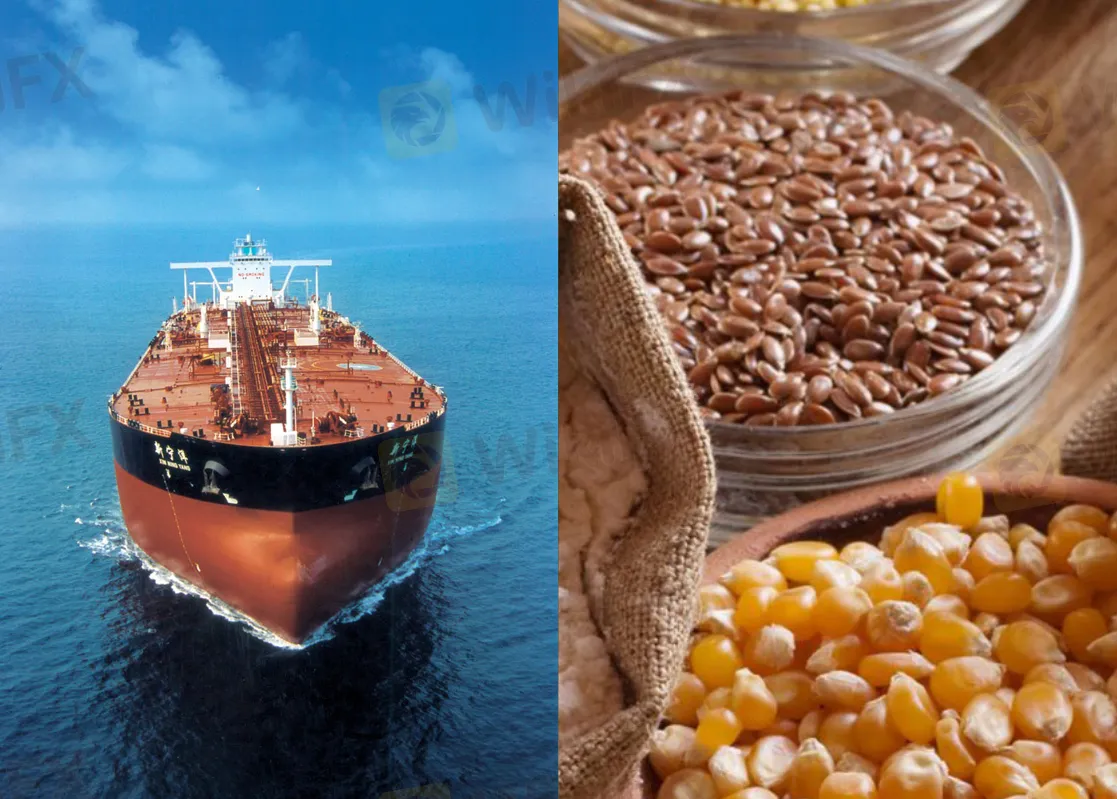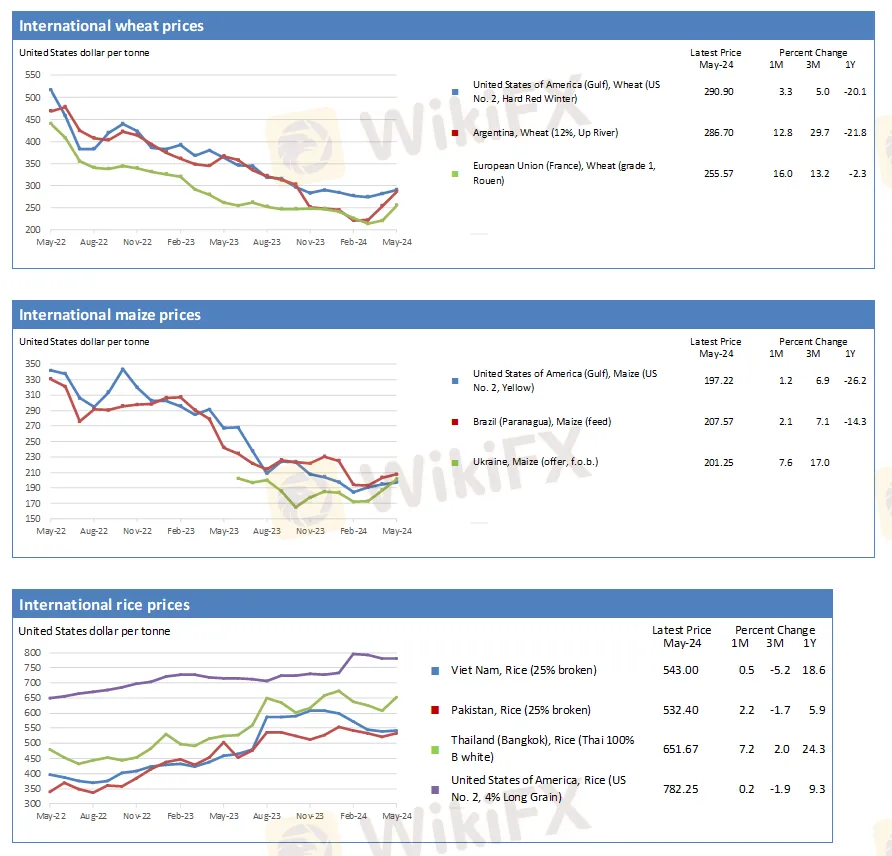简体中文
繁體中文
English
Pусский
日本語
ภาษาไทย
Tiếng Việt
Bahasa Indonesia
Español
हिन्दी
Filippiiniläinen
Français
Deutsch
Português
Türkçe
한국어
العربية
【MACRO Aler】Energy and food issues both face challenges,How to address potential supply crises and price fluctuations?
Sommario:Brent crude futures prices fell slightly during the Asian trading session, affected by an increase in U.S. crude oil inventories; the rise in U.S. Strategic Petroleum Reserve (SPR) stocks does not affect commercial statistics. At the same time, fighting near the Khartoum refinery in Sudan has affected crude oil exports, and a fire at the Dangote refinery in Nigeria has been controlled and a new unit has been launched. The global tanker fleet faces a risk of supply shortage. The agricultural comp

Brent crude futures prices fell slightly during the Asian trading session, affected by an increase in U.S. crude oil inventories; the rise in U.S. Strategic Petroleum Reserve (SPR) stocks does not affect commercial statistics. At the same time, fighting near the Khartoum refinery in Sudan has affected crude oil exports, and a fire at the Dangote refinery in Nigeria has been controlled and a new unit has been launched. The global tanker fleet faces a risk of supply shortage. The agricultural company Oland warns that geopolitical and climate change may trigger a “food war,” trade restrictions exacerbate food inflation, and challenges to agricultural production from climate change are prompting an increase in protectionist policies. The company calls for action to address climate change and suggests taxing to reduce carbon emissions.
During the Asian trading session, Brent crude futures prices fell slightly, primarily due to the impact of the U.S. Energy Information Administration's (EIA) report on the increase in crude oil inventories. Specifically, the August Brent crude futures contract was quoted at $85.06 per barrel, down 19 cents from the previous trading day's closing price. At the same time, the price of the August crude futures contract on the New York Mercantile Exchange also fell, with a price of $80.67 per barrel, down 23 cents from the previous trading day's closing price.
The EIA report indicated that due to the slowdown in refinery operations and a decrease in export volumes, crude oil inventories increased by 3.6 million barrels last week, bringing the total to 460.7 million barrels. Compared to the same period last year, this figure has increased by 7 million barrels. Additionally, U.S. SPR crude oil stocks also saw an increase, with a weekly increase of 1.3 million barrels, bringing the total to 372.2 million barrels, marking the largest weekly increase since the latter half of 2023 for the U.S. government's replenishment of the SPR. It is worth noting that SPR stocks are not included in EIA commercial crude oil inventory statistics.

The survey results from the Dallas Federal Reserve Bank indicate that activity in the U.S. oil and gas industry rebounded in the second quarter after weather-related disruptions earlier in the year. The Business Activity Index rose from 2.0 in the first quarter to 12.5, calculated as the difference between the percentage of firms reporting growth and those reporting contraction. However, conflicts near the Khartoum refinery in Sudan have prevented approximately 100,000 barrels per day of heavy crude oil from reaching Sudan's Bashayer export terminal, thus hindering restart efforts.
Nevertheless, production of medium-grade crude oil in southern Sudan remains unaffected as it continues to be transported to Bashayer via another operational pipeline. On another front, the recent fire at Nigeria's Dangote refinery has been contained; the refinery, with a daily processing capacity of 650,000 barrels, has now resumed normal operations. Officials from the refinery noted the recent commissioning of a new desulfurization unit as part of its fifth phase of pre-commissioning.
At the Marine Money conference in New York, shipowner groups discussed concerns that the global tanker fleet may face supply shortages in the coming years due to limited new tanker construction amid expected growth in crude oil demand. The lengthy construction cycles for commercial vessels, coupled with existing backlogs at most shipyards worldwide extending into the late 2020s, are primarily attributed to meeting the surge in container ship demand caused by port congestion and enhanced consumer purchasing power during the Covid-19 pandemic.

In addition to energy concerns, future challenges in food security are also looming. Sunny Verghese, head of Olam International, has issued a warning highlighting that geopolitical tensions and climate change could potentially spark global “food wars.” In media interviews, Verghese pointed out that increased trade restrictions have exacerbated food inflation, magnifying issues of supply-demand imbalance.
During a conference, Verghese suggested that just as wars have historically erupted over oil resources, larger-scale conflicts could emerge in the future over food and water resources. Since the 2022 Russia-Ukraine conflict, which saw soaring food prices, major agricultural traders have profited significantly, though their price hikes have been criticized for exacerbating inflation issues. Verghese, however, disagrees with this perspective, attributing part of the food price increases to government interventions and a substantial increase in non-tariff trade barriers (1266 measures that year).
As tensions in commodity trading intensify, wealthy nations' demand to create surplus stocks further drives up food prices. Olam International noted that rising prices not only exacerbate cost-of-living crises in certain regions but have also exacerbated food shortages, increasingly alarming poorer areas since the onset of the COVID-19 pandemic.

Furthermore, climate change has posed greater challenges to agricultural production, resulting in significant increases in prices of commodities such as cocoa, coffee, and sugar. This has also prompted global governments to turn to protectionist policies to safeguard domestic markets. For instance, Indonesia has banned palm oil exports, and India has restricted rice exports. While deemed as a misguided approach, it is anticipated that similar situations may arise in the future. Some even argue that geopolitical tensions, climate change, and trade restrictions collectively exacerbate global food supply shortages, potentially leading to “food wars.” He calls on all parties to take more measures to address this challenge.
Disclaimer:
Le opinioni di questo articolo rappresentano solo le opinioni personali dell’autore e non costituiscono consulenza in materia di investimenti per questa piattaforma. La piattaforma non garantisce l’accuratezza, la completezza e la tempestività delle informazioni relative all’articolo, né è responsabile delle perdite causate dall’uso o dall’affidamento delle informazioni relative all’articolo.
WikiFX Trader
OANDA
FXTM
Tickmill
FP Markets
Pepperstone
HFM
OANDA
FXTM
Tickmill
FP Markets
Pepperstone
HFM
WikiFX Trader
OANDA
FXTM
Tickmill
FP Markets
Pepperstone
HFM
OANDA
FXTM
Tickmill
FP Markets
Pepperstone
HFM
Rate Calc


